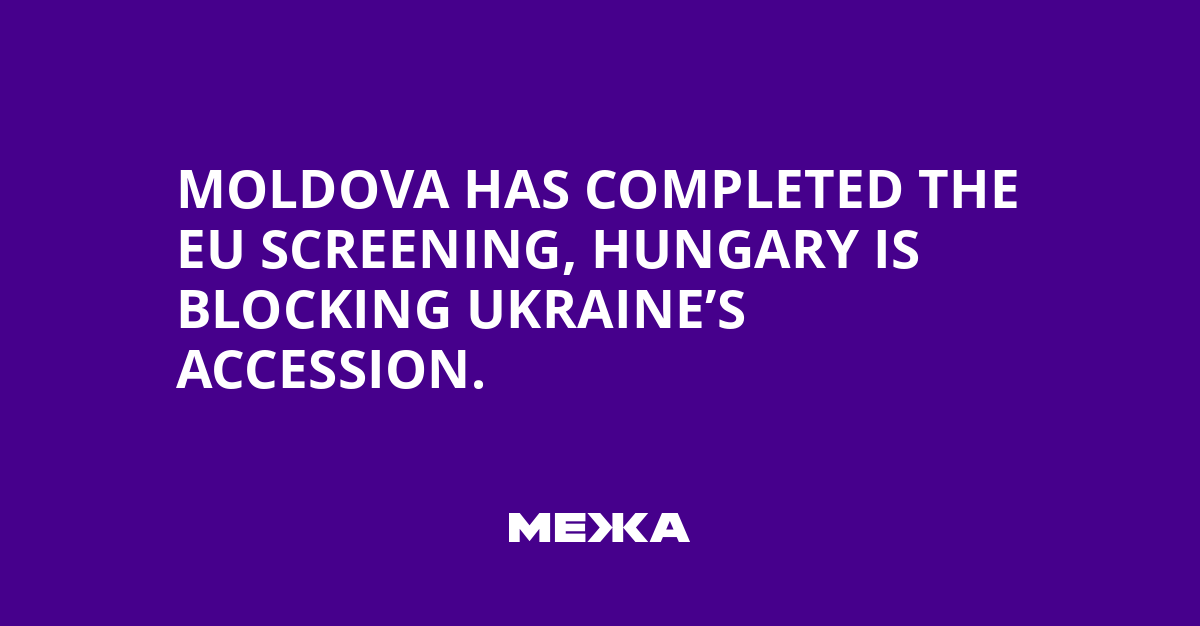Vice Prime Minister for European Integration Olga Stefanishyna stated to Interfax-Ukraine that this process is a “small obstacle that will not prevent the start of negotiations.”
Moldova has successfully completed the European Union’s bilateral screening, covering four key clusters of accession negotiations. This was reported by a representative of the European Commission. Specifically, these are clusters: 1 (Fundamental Issues), 2 (Internal Market), 3 (Competitiveness and Inclusive Growth), and 6 (External Relations).
However, the official did not provide clear information about Moldova’s next steps or the opening of the first negotiation cluster. He noted:
“Each country is assessed on its own merits. The Commission has evaluated and expressed its opinion on Moldova. There will be another assessment, or it is already underway for Ukraine. The next steps must be taken by the EU Council. Moldova has demonstrated considerable commitment and progress. This means they are ready to open the first cluster. Our goal is to complete the bilateral screening for the fourth and fifth clusters as soon as possible. The decision on the next steps now lies with the member states, and we are ready to support the work and push the member states forward so that, hopefully, negotiations can begin soon.”
It is worth noting that Ukraine has already completed the EU screening in three negotiation clusters – Fundamental Issues (cluster 1), Internal Market (cluster 2), and External Relations (cluster 6). Reports on these areas have already been sent to the EU Council. Regarding Ukraine, the European Commission plans to submit the report on cluster 3 in July.
On June 26, during the European Council meeting, Romanian President Nicușor Dan stated that on July 4, the European Union would open the first cluster of Moldova’s accession negotiations. However, the EU representative denied this information:
“I’m afraid he misspoke.”
On June 27, Nicușor Dan admitted his mistake, explaining that he meant the meeting in Chișinău on July 4 – the “EU–Moldova” summit, not the opening of the first negotiation cluster.
Hungary’s Blocking of Ukraine’s EU Accession
Since the beginning of 2025, Hungary has been blocking the opening of negotiation clusters for Ukraine’s EU accession. The government of this country claims that Ukraine’s membership in the EU would be a burden both for the bloc and for Hungary itself.
Hungary held a consultative referendum on Ukraine’s accession to the European Union, which outlined “7 key threats” that, according to the government, could arise from Ukraine’s membership. Among these threats are economic risks, migration, and impacts on the pension system and labor market.
Additionally, the Hungarian government sent letters to citizens urging them to vote against Ukraine’s EU membership during the referendum.
On June 26, 2025, Hungarian Prime Minister Viktor Orbán stated that he opposes Ukraine’s accession to the EU because it could lead to the war being brought onto Hungarian territory. He also announced the results of the consultative referendum, in which over 2 million Hungarians voted, and 95% were against Ukraine’s EU membership.
Although this referendum has no legal force, Orbán uses it as a political tool to pressure European partners.
The leader of Hungary’s opposition party “Tisza,” Péter Magyar, noted that only about 600,000 Hungarians participated in the referendum out of the country’s population of over 9.5 million.
In Ukraine, this initiative is seen as political manipulation. Deputy Prime Minister for European Integration Olga Stefanishyna stated that this process is “a minor obstacle that will not prevent the start of negotiations.”
